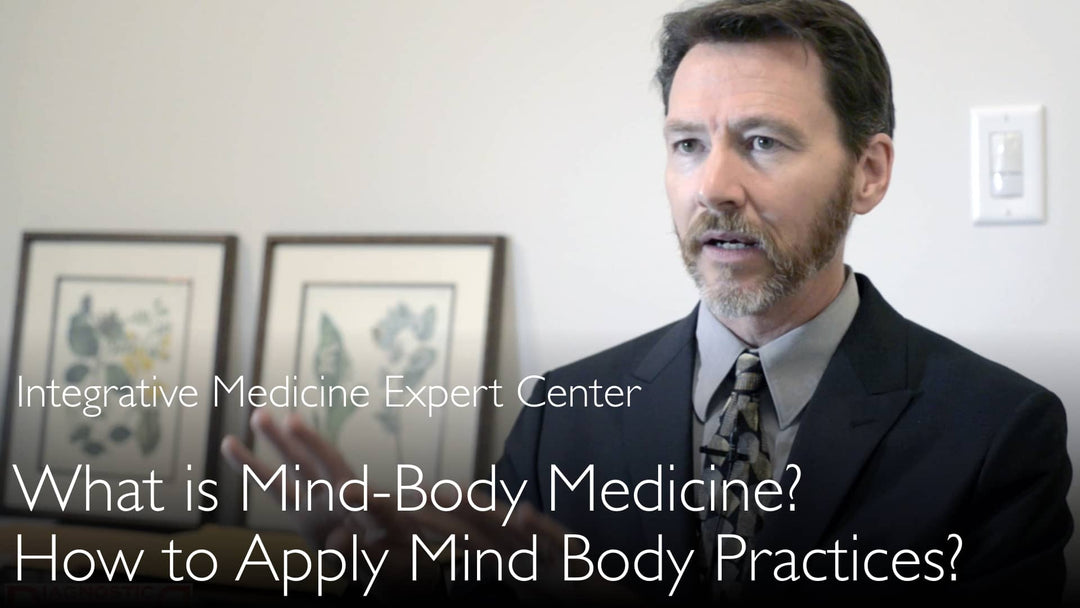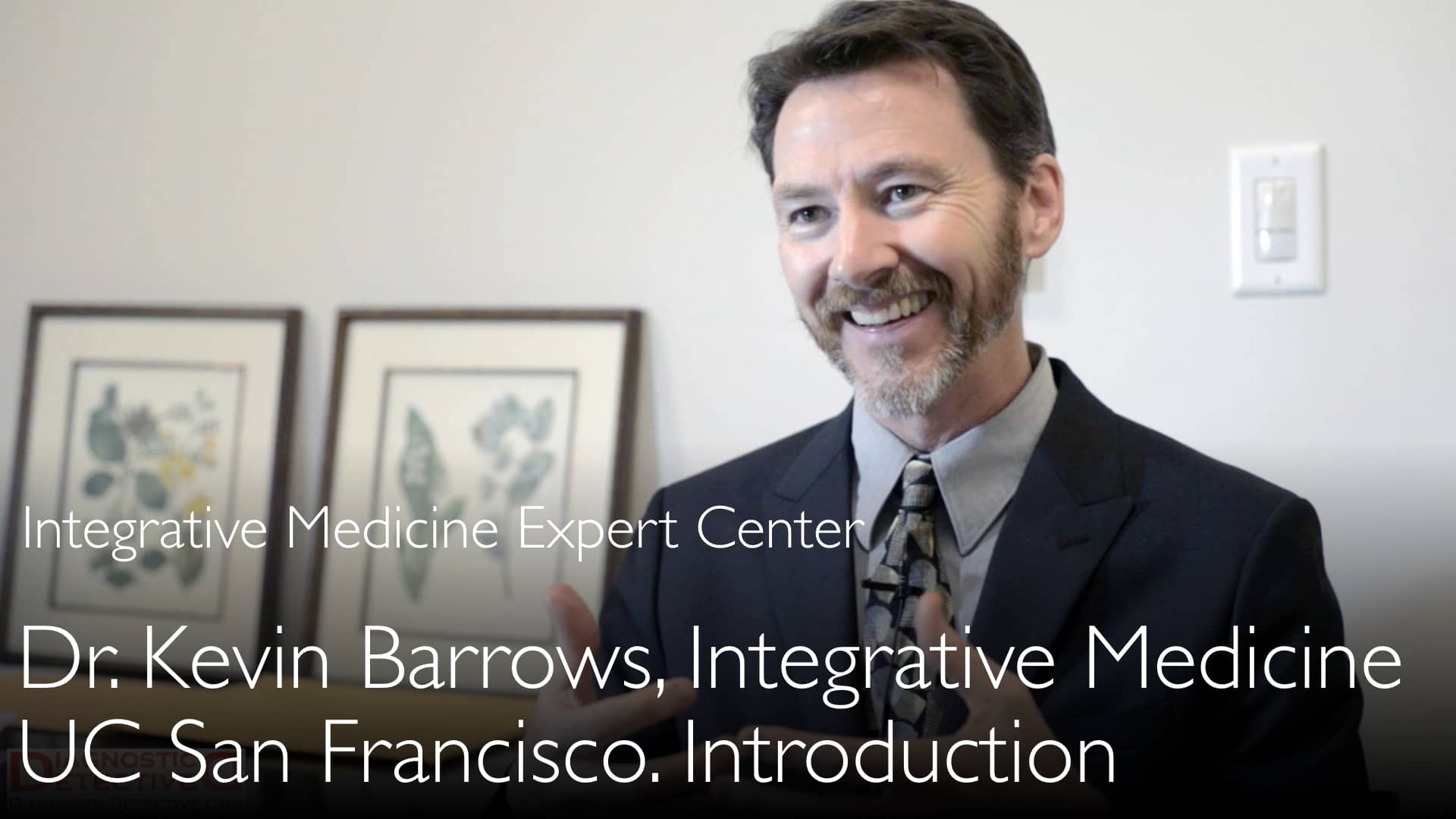מומחה מוביל ברפואה אינטגרטיבית, ד"ר קווין בארוז, MD, מסביר את המושג רפואת גוף-נפש ויישומה בפרקטיקה הקלינית. רפואת גוף-נפש עוסקת בקשר ההדדי בין הנפש לגוף, המשפיע על תוצאות בריאותיות במצבים כמו סרטן, מחלות אוטואימוניות, מיגרנות והפרעות נפשיות. ד"ר קווין בארוז, MD, דן בטיפולים כגון מדיטציה, היפנוזה ויוגה, ומדגיש את הפוטנציאל שלהם כמקורות ריפוי שלא מוצו. הוא מדגיש את החשיבות של הבנת הקשר גוף-נפש, הנתמך במחקר מדעי, לשיפור אסטרטגיות הטיפול במחלות שונות.
הבנת רפואת גוף-נפש: יישומים ויתרונות
קפיצה לפרק
- מושג רפואת גוף-נפש
- קשר גוף-נפש בבריאות
- טיפולים ברפואת גוף-נפש
- יישומים במצבים רפואיים
- מחקר מדעי התומך ברפואת גוף-נפש
- פוטנציאל רפואת גוף-נפש
- תמליל מלא
מושג רפואת גוף-נפש
ד"ר קווין בארוז, MD, מגדיר רפואת גוף-נפש כתהליכים נפשיים המשפיעים על בריאות הגוף. הוא מדגיש שהגדרה זו אינה מושלמת כיון שהיא מרמזת על הפרדה בין נפש לגוף. במקום זאת, רפואת גוף-נפש רואה בהם ישות מחוברת, שבה כל פעולה המשפיעה על האחד תשפיע על השני.
קשר גוף-נפש בבריאות
ד"ר קווין בארוז, MD, מסביר שהנפש והגוף אינן ישויות נפרדות. הנפש יכולה להשפיע על הגוף, ולהפך. לדוגמה, פעילות אירובית יכולה לשפר את מצב הרוח, בעוד שתרופות מסוימות כמו אינטרפרון לדלקת כבד כרונית עלולות לגרום לדיכאון. זה מדגיש את האינטראקציה הכימית והפסיכולוגית בבריאות.
טיפולים ברפואת גוף-נפש
רפואת גוף-נפש כוללת טיפולים כמו מדיטציה, היפנוזה, ביופידבק, דמיון מודרך, טאי צ'י ויוגה. ד"ר קווין בארוז, MD, מציין כי שיטות אלו הן כלים רבי עוצמה לריפוי, שלעיתים קרובות אינם מנוצלים דיים ברפואה הקונבנציונלית. הם מציעים גישה הוליסטית לבריאות על ידי התייחסות להיבטים הנפשיים והפיזיים כאחד.
יישומים במצבים רפואיים
ד"ר קווין בארוז, MD, דן בשימוש ברפואת גוף-נפש לטיפול במיגרנות, תסמונת המעי הרגיז ומחלות כאב. הוא מדגיש את יעילותה במצבי בריאות הנפש כמו דיכאון וחרדה, שם תפיסת הכאב ומצב הרוח במוח יכולים להשתנות משמעותית באמצעות שיטות אלו.
מחקר מדעי התומך ברפואת גוף-נפש
קיים מחקר מדעי מערבי ניכר התומך בקשר גוף-נפש. ד"ר בארוז מצביע על מחקרים המראים כיצד פעילות גופנית ותרופות מסוימות משפיעות על בריאות הנפש, ומחזקים את הרעיון שנפש וגוף שלובים deeply בתוצאות הבריאות.
פוטנציאל רפואת גוף-נפש
ד"ר בארוז מאמין שרפואת גוף-נפש היא חזית עם פוטנציאל ריפוי עצום שלא נוצל. הוא מציע שכוח הנפש עשוי למלא תפקיד בהחלמות שנראות כנסיות, בהן חולים מפריכים ציפיות רפואיות. פוטנציאל זה הופך את רפואת גוף-נפש לתחום valuable לחקירה ויישום נוסף בטיפול הבריאות.
תמליל מלא
ד"ר אנטון טיטוב, MD: מהי רפואת גוף-נפש? מה הדרך הטובה ביותר ליישם רפואת גוף-נפש?
ד"ר קווין בארוז, MD: נוכל להתחיל להגדיר רפואת גוף-נפש כתהליכים נפשיים המשפיעים על בריאות הגוף. זו הגדרה לא מושלמת של רפואת גוף-נפש, אך נוכל להתחיל שם. הסיבה שאני אומר שהגדרה זו אינה מושלמת היא שאנו אומרים שתהליכים נפשיים משפיעים על הגוף, מה שמרמז על דואליות עדינה. דואליות זו מציעה שהנפש והגוף נפרדים, כשהנפש משפיעה על הגוף. העיקרון הבסיסי של רפואת גוף-נפש הוא שהם מחוברים. יש חולה אחד, וכל מה שתעשה לנפש או לגוף ישפיע על שניהם.
יתרה מכך, לא רק שהנפש משפיעה על הגוף; הגוף יכול להשפיע על הנפש. יש לנו מחקר מדעי מערבי מצוין על קשר גוף-נפש. אנו יודעים שפעילות אירובית משפרת את מצב הרוח, ואנו יודעים שסוכנים טיפוליים מסוימים בהם אנו משתמשים, כמו אינטרפרון לדלקת כבד כרונית, בעלי שכיחות גבוהה של דיכאון כתופעת לוואי. זו תרופה כימית שאנו נותנים, והיא משפיעה על הנפש.
דוגמאות לטיפולי רפואת גוף-נפש כוללות מדיטציה, היפנוזה, ביופידבק, דמיון מודרך, טאי צ'י ויוגה. רפואת גוף-נפש היא תחום שימושי מאוד ואולי מקור הריפוי הלא מנוצל הגדול ביותר במקרים רבים. זה סוג של חזית שלא נחקרה במלואה. אני חושב לעיתים קרובות על ריפויים ניסיים, כמו כאשר רופא חשב שחולה הולך למות, ושלושה חודשים לאחר מכן הוא הבריא. אני תוהה לעיתים קרובות האם כוח הנפש משחק שם תפקיד. זו תופעת רפואת גוף-נפש.
אני מוצא אותה ממש שימושית במקרים מסוימים. ברוב המקרים, רפואת גוף-נפש יכולה להיות שימושית, אך אני אומר במיוחד במחלות כמו מיגרנה, תסמונת המעי הרגיז ומחלות כאב. המוח יכול באמת לשנות את תפיסת הכאב שלנו. בוודאי שרפואת גוף-נפש מועילה במחלות בריאות הנפש, דיכאון וחרדה.
ד"ר אנטון טיטוב, MD: מהי רפואת גוף-נפש? מבוא ודוגמאות לשימוש בטיפול בסרטן ובמחלות אוטואימוניות. כיצד להשתמש ברפואת גוף-נפש בחיי היומיום.





